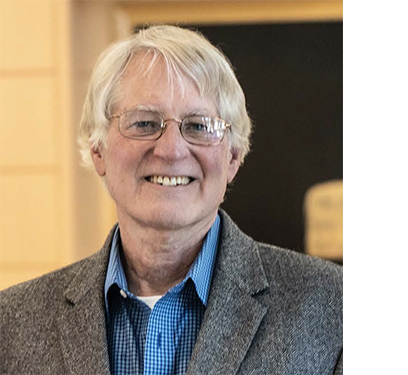Ken Dill - A biophysical perspective on the origin of life
Talk details
- Date: 13 November 2022
- Video recording
Talk abstract
From the speaker:
"It is widely accepted that biological change occurs through natural processes by Darwinian evolution. What’s missing is an origins story, of how Darwinian evolution might have first arisen from physics and chemistry at the origins of life 3.5 billion years ago. Such a story is now emerging, based on the synthesis and folding of short protein molecules that catalyze the elongation of others. I will describe these ideas, and how they address some of the controversies in the field, including what drives it, how it is an anti-thermodynamic tendency away from—not towards—equilibrium, and how it is self-serving and able to increase complexity."
Presenter
Ken Dill
Ken Dill is the director of the Laufer Center for Physical and Quantitative Biology at Stony Brook University and the Louis and Beatrice Laufer Professor of Physics and Chemistry. He received bachelor’s and master’s degrees in science from the Massachusetts Institute of Technology in mechanical engineering in 1971, a PhD in biology with Bruno H. Zimm at the University of California, San Diego, did postdoctoral research with Paul J. Flory at Stanford University, and was on the faculty of the University of California San Francisco for 25 years.
His research is at the intersection of statistical physics with the biophysics of proteins and cells. He has worked on the physics of protein folding, computational structural biology, proteostasis in the cell, and on foundational problems in nonequilibrium statistical physics.
Dill is a past president of the Biophysical Society and a co-author of two textbooks. He received the Hans Neurath Award from the Protein Society, the Max Delbruck Award from the American Physical Society, and the Sackler Prize in Biophysics. Dill is a member of the U.S. National Academy of Sciences and the American Academy of Arts and Sciences.


